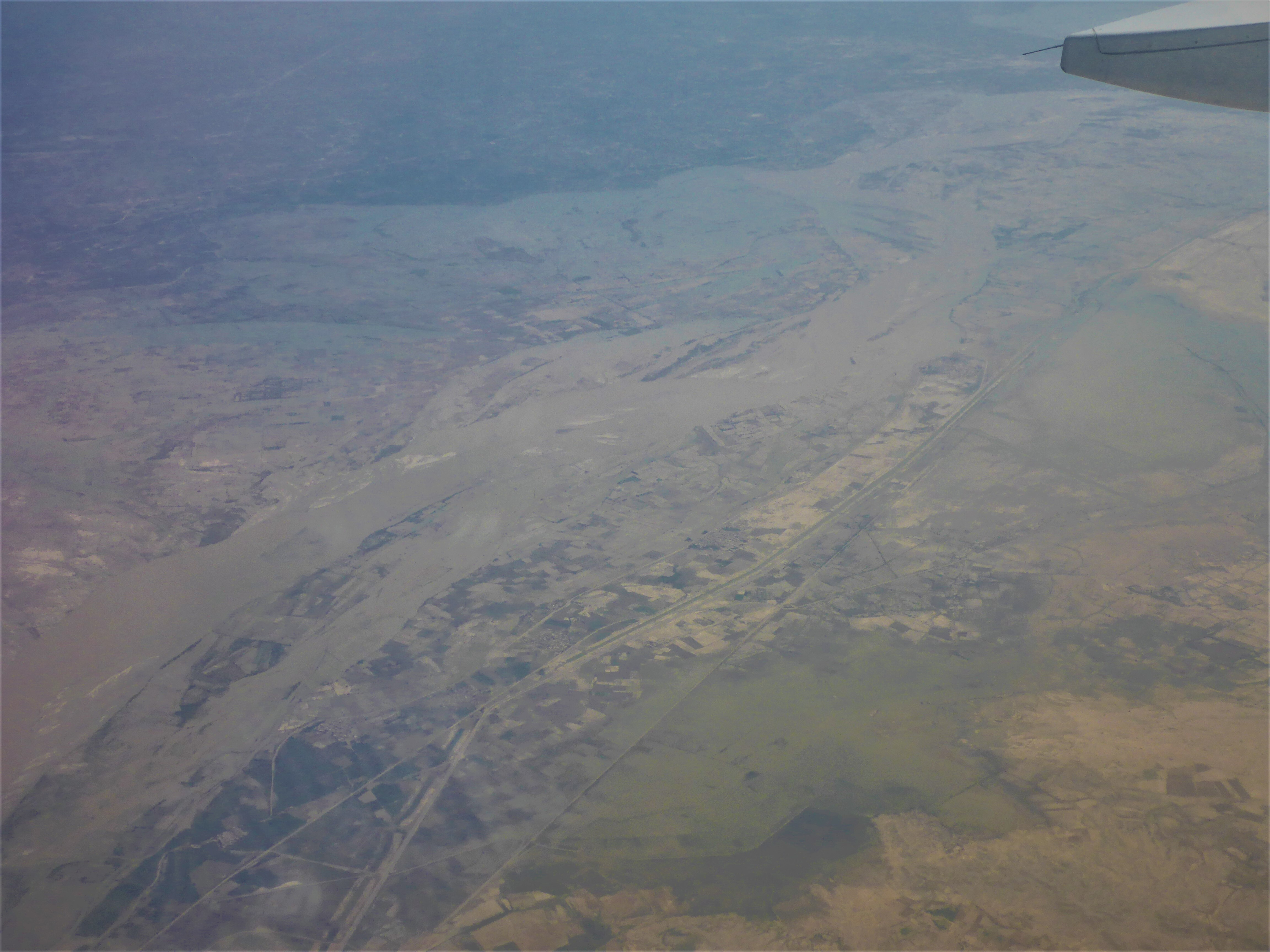Pakistan Elections 2024
Ensuring Inclusive Elections in Flood-Stricken Areas

Flutgebiete in Sindh
© Birgit LammThe world is struggling with the severe impacts of climate change. While the root causes of this global issue are often traced back to industrialized nations,its effects are disproportionately felt in developing regions. Pakistan is no exception, as it grapples with the adverse consequences of changing weather patterns, rising temperatures, severe floods, and extreme weather events.
In 2022, the country witnessed a massive impact of climate change, particularly in Sindh and Balochistan in the shape of devastating floods. According to the National Disaster Management Authority's (NDMA) annual report for 2022, approximately one-third of the country was flooded, directly affecting the lives of 33 million people, and forcing nearly 8 million to evacuate their homes. The estimated damage was staggering, reaching around $14.9 billion. The Post-Disaster Needs Assessment (PDNA) by the Planning Commission of Pakistan revealed that the floods caused over $4,000 million in losses and damages in Balochistan, while Sindh suffered even more significantly, with losses and damages estimated at a staggering $20,444 million.
Climate change's impact is not equal. It amplifies existing inequalities, hitting different societies, genders, and socioeconomic groups with varying intensity and consequences. Apart from PDNA estimates of losses and damage, in 2022 floods hit Balochistan and Sindh differently and the impacts can be faced in years.
The case of lost ID cards
Various studies indicate that disasters affect electoral participation differently even in developed countries. A recent study conducted by the Centre for Peace and Development Initiatives (CPDI) revealed the potential for a low voter turnout in flood-affected areas of Sindh and Balochistan during the General Elections scheduled for February 8, 2024, in Pakistan. The study highlighted a significant number of individuals losing their Computerized National Identity Cards (CNICs), a mandatory requirement for casting votes. Notably, in Naushahro Feroze, nearly every household reported at least one person losing their CNIC.
On polling day, polling stations are primarily set up in school buildings. However, in Sindh's flood-affected areas, almost 40% of school buildings have been partially or fully damaged. This poses a significant challenge for voters, particularly women, elderly individuals, and persons with disabilities (PWDs), especially if polling stations are relocated. The floods have severely damaged infrastructure, leading to the erosion of rural roads and access tracks. This situation may force people to take longer alternative routes to reach polling stations, potentially impacting voter turnout negatively.
Loss of households, sources of income, assets, rising food prices, and disease outbreaks are impacting the most vulnerable groups. Women have suffered notable losses of their livelihoods, particularly those associated with agriculture and livestock. Due to house damages and family displacement, a large number of individuals have not returned to their hometowns due to a lack of resources and have shifted to nearby urban or safe areas. There is a possibility that such low-income migrant families will not return to cast their votes, potentially leading to a low voter turnout.
The floods have severely damaged infrastructure, leading to the erosion of rural roads and access tracks. This situation may force people to take longer alternative routes to reach polling stations, potentially impacting voter turnout negatively.
Recommendations
Every vote holds significance, and it is the responsibility of the state to ensure equal opportunities for citizens to meaningfully participate in the electoral process. It is recommended that relevant departments adopt an inclusive approach to address the challenges faced by flood-affected people, facilitating their rehabilitation, and ensuring an equal opportunity to exercise their voting rights. To achieve this, National Database & Registration Authority (NADRA) should
- Consider increasing the number of CNIC issuing centers in flood-affected areas, allowing people to obtain their CNICs well in advance of the elections.
- Special counters tailored for elderly persons, women, and PWDs should be established, and the replacement fee for CNICs in flood-affected areas should be waived.
- Allocating double Mobile Registration Vans (MRVs) could further reinforce the issuance of CNICs.
If the original polling station buildings are damaged, it is suggested to establish nearby temporary polling stations in neutral premises instead of relocating to distant locations. When setting up these temporary stations, it is crucial to ensure arrangements for ramps and other basic facilities, promoting inclusive participation. Additionally, in areas where community conflicts emerged during the floods and are likely to disrupt the voting process, deploying additional security at polling stations is essential to maintain order and safeguard the electoral proceedings.
Here, I conclude with the quote of Barbara Boxer “Every citizen of country should be guaranteed that their vote matters, that their vote is counted, and that in the voting booth, their vote has as much weight as that of any CEO, any member of Congress, or any President.”
